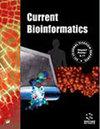CNRBind: Small Molecule-RNA Binding Sites Recognition via Site Significant from Nucleotide and Complex Network Information
IF 2.9
3区 生物学
Q3 BIOCHEMICAL RESEARCH METHODS
引用次数: 0
Abstract
Background: Small molecule-RNA binding sites play a significant role in developing drugs for disease treatment. However, it is a challenge to propose accurate computational tools for identifying these binding sites. Method: In this study, an accurate prediction model named CNRBind was constructed by extracting site significant information from nucleotide and complex networks. We designed complex networks and calculated three topological structural parameters according to RNA tertiary structure. Acknowledging nucleotide interdependence, a sliding window was selected to integrate the influence of adjacent sites. Finally, the model was constructed using a random forest classifier. Results: Compared to the other computational tools, CNRBind was competitive and had excellent discriminative ability for metal ion-binding site prediction. Furthermore, statistic analysis revealed significant differences between CNRBind and existing methods. Additionally, CNRBind is a promising predictor in cases where experimental tertiary structure is unavailable. Conclusion: These results show that CNRBind is effective because of the proposed site significant information encoding strategy. The approach provides a reasonable supplement for biology researches. The dataset and resource codes can be accessed at: https://github.com/Kangxiaoneuq/CNRBind.CNRBind:通过核苷酸和复杂网络信息中的显著位点识别小分子-RNA 结合位点
背景:小分子-RNA 结合位点在开发疾病治疗药物方面发挥着重要作用。然而,提出准确的计算工具来识别这些结合位点是一项挑战。研究方法本研究通过提取核苷酸和复杂网络中的重要结合位点信息,构建了名为 CNRBind 的精确预测模型。我们设计了复杂的网络,并根据 RNA 的三级结构计算了三个拓扑结构参数。考虑到核苷酸之间的相互依赖性,我们选择了一个滑动窗口来整合相邻位点的影响。最后,使用随机森林分类器构建了模型。结果与其他计算工具相比,CNRBind 在预测金属离子结合位点方面具有竞争力和出色的判别能力。此外,统计分析显示 CNRBind 与现有方法存在显著差异。此外,在没有实验三级结构的情况下,CNRBind 是一种很有前途的预测工具。结论:这些结果表明,CNRBind 是一种有效的方法,因为它采用了拟议的位点重要信息编码策略。该方法为生物学研究提供了合理的补充。数据集和资源代码请访问:https://github.com/Kangxiaoneuq/CNRBind。
本文章由计算机程序翻译,如有差异,请以英文原文为准。
求助全文
约1分钟内获得全文
求助全文
来源期刊

Current Bioinformatics
生物-生化研究方法
CiteScore
6.60
自引率
2.50%
发文量
77
审稿时长
>12 weeks
期刊介绍:
Current Bioinformatics aims to publish all the latest and outstanding developments in bioinformatics. Each issue contains a series of timely, in-depth/mini-reviews, research papers and guest edited thematic issues written by leaders in the field, covering a wide range of the integration of biology with computer and information science.
The journal focuses on advances in computational molecular/structural biology, encompassing areas such as computing in biomedicine and genomics, computational proteomics and systems biology, and metabolic pathway engineering. Developments in these fields have direct implications on key issues related to health care, medicine, genetic disorders, development of agricultural products, renewable energy, environmental protection, etc.
 求助内容:
求助内容: 应助结果提醒方式:
应助结果提醒方式:


